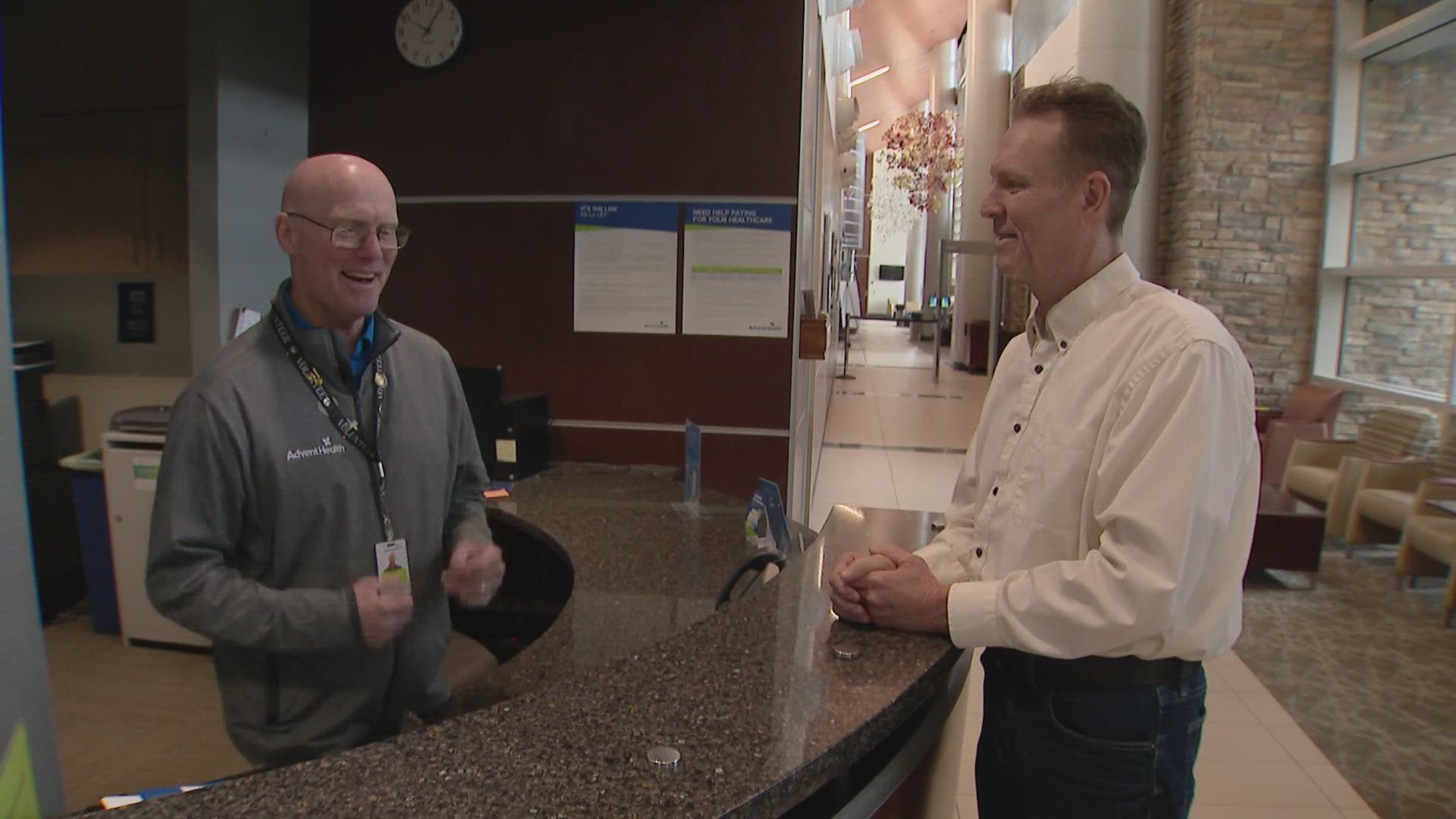CASTLE ROCK, Colo. — According to AdventHealth Castle Rock, 80% of strokes are preventable. But each year, they're seeing their patient volumes increase.
“We see it in all ages from neo-natals, to elderly, to teenagers, to pediatrics," said Nicole Johnson, stroke program coordinator.
She said they treat around 200 strokes per year just at their medical facility. It's a big number for a small community, and it's why they're trying to raise awareness.
"I've just always been someone that wants to help other people," said Drew Baske.
Baske is volunteer at the hospital. Over the last five years, the imaging department has become his new calling.
"I'm just so blessed to be alive and to have another chance to do life better because as a paramedic I know how badly this could've ended," he said.
Baske is also a stroke survivor who understands how terrifying getting an MRI or CT scan for the first time can be.
"It's kind of nice to hold peoples' hands through the process," he said.
Johnson said Baske's a great support to their patient community, as they continue to treat more patients for strokes.
"We are increasing, sadly, every single year with our stroke volumes and the amount of patients that we see," she said.
It's why she said knowing the warning signs are so important.
"A sudden onset of loss of balance, where you're kind of running into things, not walking like your normally would, a sudden onset of vision loss, dizziness, blurred vision, missing vision," said Johnson.
Facial droop, sudden loss of sensation in your arms or legs, slurred speech, and headaches could all mean its time to call 911.
Johnson said it's important for people to know their risk factors, family and health history.
"We can control a lot of those risk factors by going to our primary cares annually, doing your annual check-up’s, being on any medications they might prescribe you for high blood pressure, high cholesterol, controlling and maintaining diabetes and really just living an active lifestyle, having healthy diet and taking care of yourself," she said.
Eight months after his stroke, Baske said he tried to go back to work, teaching paramedic and EMT school.
"...at what I would say was about 30% capacity of who I used to be, with a big chunk of my brain dead," he said.
Baske said realizing he couldn't do it anymore, was the hardest decision of his life.
"Yeah, I needed some help," he said. "I hated to admit it, but I did."
Joining a support group was something Drew never thought he'd need. But, he soon realized through other stroke survivors, like Sean Morris, he wasn't the only one struggling.


"I have learned that my stroke hit me March 18th, 2019," said Morris. "I will tell you that my life completely changed after that."
Sean had to re-learn how to do everything.
"I could not walk, talk, stand," he said. "I could not do anything."
Even his memories disappeared.
"Life can move forward and that's where I'm at," said Morris.
Sean said he's grateful for his family, and fellow survivors like Drew for helping him get his life back.
"When I see people like Drew and I've had that opportunity, I can't tell you how much that means for me today," said Morris.
Johnson said their stroke support group meets monthly, on the third Monday of each month from 3-4:30 p.m.
AdventHealth Castle Rock is also hosting "Hero Fest" this Saturday, May 18th where they will be celebrating frontline workers like first responders and nurses. There will be educational activities, food, and fun for families. It's a free, public event that goes from 12 p.m. - 4 p.m.
SUGGESTED VIDEOS: Latest from 9NEWS

